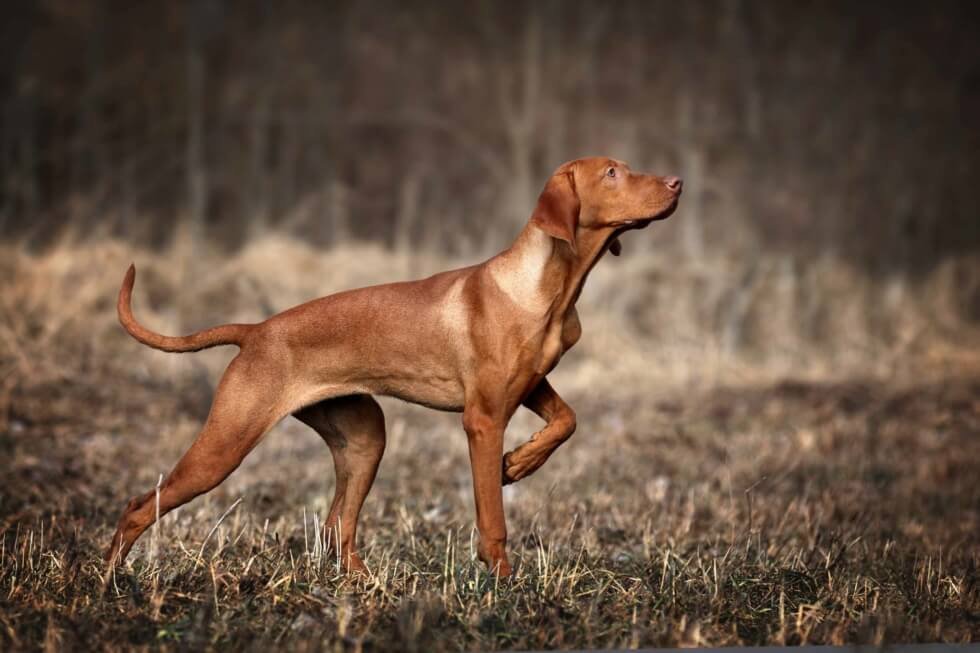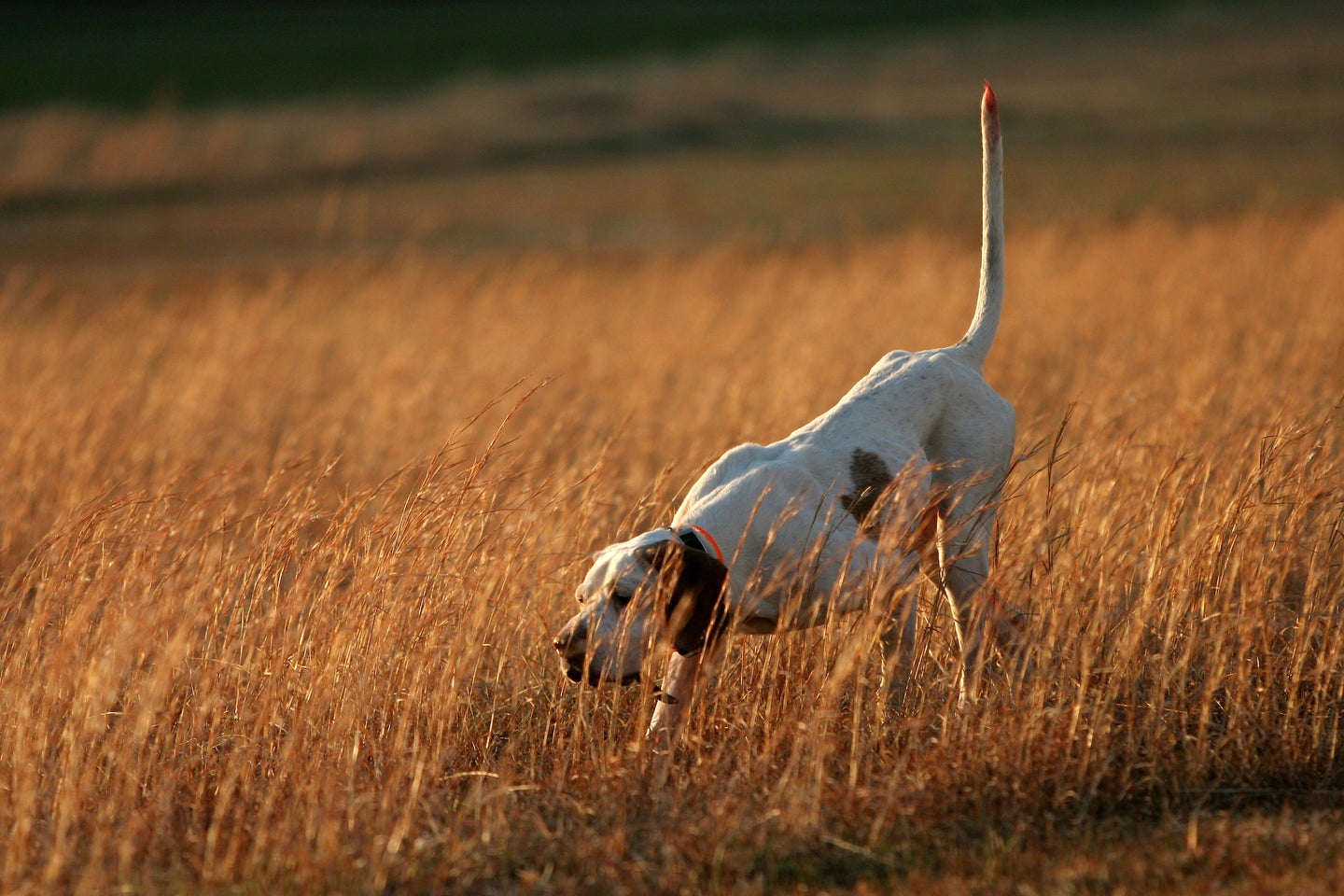Hunting has been an integral part of human civilization for thousands of years. From assisting in tracking game to retrieving downed birds, hunting dogs have played a crucial role in these pursuits. In this article, Cachlamshop will delve into the world of hunting dog breeds, exploring their unique characteristics, abilities, and suitability for various hunting tasks. Whether you are an experienced hunter or a novice looking to embark on your first hunting adventure, understanding the different hunting dog breeds can help you find the perfect canine companion for a successful and enjoyable hunt.
Hunting Dog Breeds: Discovering the Best Companions for the Hunt

- The Purpose of Hunting Dog Breeds:
Hunting dog breeds are specifically bred and trained to aid hunters in various aspects of their pursuit. These versatile canines exhibit specific traits and skills that make them well-suited for tasks such as tracking, flushing, retrieving, and pointing. Their keen sense of smell, agility, stamina, and obedience are essential attributes that contribute to their effectiveness in the field. - Retrievers: Masters of the Retrieve:
Retrievers are highly popular hunting dog breeds known for their exceptional retrieving abilities. Labrador Retrievers, Golden Retrievers, and Chesapeake Bay Retrievers are among the most sought-after breeds in this category. They excel at retrieving waterfowl, game birds, and other small game. With a gentle mouth and a natural affinity for water, retrievers make excellent companions for waterfowl hunters. - Pointers: Aiding in Game Detection:
Pointing dog breeds, such as English Pointers, German Shorthaired Pointers, and Brittany Spaniels, possess an innate ability to detect and point at game birds. Their keen sense of smell and exceptional pointing instinct allow hunters to locate and flush out birds with precision. Pointers are valued for their stamina, endurance, and versatility in various hunting terrains. - Spaniels: Flushing Out Game:
Spaniels, including English Springer Spaniels, Cocker Spaniels, and Boykin Spaniels, excel at flushing out game birds from dense cover. With their keen noses and remarkable agility, spaniels are skilled at locating and driving birds into the air for hunters to take a shot. Their energy, enthusiasm, and adaptability make them ideal companions for upland bird hunting.

- Hounds: Tracking and Trailing Game:
Hound breeds, such as Beagles, Bloodhounds, and Coonhounds, are renowned for their exceptional tracking and trailing abilities. These dogs use their acute sense of smell to track the scent of game animals, enabling hunters to follow the trail and close in on their quarry. Hounds are particularly valued for their persistence and determination in tracking various game species. - Setters: The Art of Steadiness:
Setters, including English Setters and Irish Setters, are highly regarded for their ability to locate and point at game birds while remaining steady until the hunter approaches. They exhibit an elegant and graceful pointing stance, allowing hunters to position themselves for a successful shot. Setters are known for their intelligence, loyalty, and striking appearance in the field. - Versatile Hunting Dog Breeds:
Certain hunting dog breeds possess a combination of skills that make them versatile in the field. The German Wirehaired Pointer and the Vizsla are examples of breeds that excel in tracking, pointing, and retrieving. These versatile breeds offer hunters the advantage of a well-rounded companion capable of performing multiple tasks, adapting to different hunting styles and environments. - Training and Socialization:
While hunting dog breeds often possess inherent hunting instincts, proper training and socialization are crucial for developing their hunting skills and ensuring their suitability as hunting companions. Early training should focus on obedience, retrieving, tracking, and exposure to various hunting scenarios. Positive reinforcement, consistency, and patience are key elements in training these dogs to become reliable and well-behaved hunting partners. - Selecting the Right Hunting Dog Breed:
When choosing a hunting dog breed, several factors should be considered. These include the type of game you intend to hunt, the terrain you will be hunting in, your hunting style and preferences, as well as the dog’s temperament, energy level, and size. Conduct thorough research, seek advice from experienced hunters, and consult reputable breeders or rescue organizations to find the breed that best aligns with your hunting needs. - Commitment and Partnership:
Owning a hunting dog breed is a long-term commitment and requires dedication from the owner. Regular exercise, proper nutrition, grooming, and veterinary care are vital for keeping hunting dogs in optimal condition. Forming a strong partnership based on trust, respect, and clear communication with your hunting dog is essential for a successful and enjoyable hunting experience.
Conclusion:

Hunting dog breeds offer invaluable assistance to hunters, enhancing their skills and overall hunting experience. From retrievers to pointers, spaniels to hounds, each breed brings unique traits and abilities to the table. By understanding the characteristics and purposes of hunting dog breeds, hunters can make informed decisions whenselecting the best companions for their hunts.
Consider your specific hunting needs, terrain, game type, and personal preferences when choosing a hunting dog breed. Remember that training, socialization, and establishing a strong partnership with your dog are key elements in maximizing their hunting potential. With the right hunting dog by your side, you can embark on memorable hunting adventures, forge a deep bond with your canine companion, and create lasting memories in the great outdoors.
